The Movieforums Top 100 War Movies Countdown
→ in Movie Reviews
#3
#3

David Lean, 1957
William Holden, Alec Guinness, Jack Hawkins, Sessue Hayakawa

506 points, 32 lists
The Bridge on the River Kwai
Director
David Lean, 1957
Starring
William Holden, Alec Guinness, Jack Hawkins, Sessue Hayakawa
The Bridge on the River Kwai was #7 on the MoFo Top 100 of the 1950s. One spot above Paths of Glory.
__________________
"Film is a disease. When it infects your bloodstream it takes over as the number one hormone. It bosses the enzymes, directs the pineal gland, plays Iago to your psyche. As with heroin, the antidote to Film is more Film." - Frank Capra
"Film is a disease. When it infects your bloodstream it takes over as the number one hormone. It bosses the enzymes, directs the pineal gland, plays Iago to your psyche. As with heroin, the antidote to Film is more Film." - Frank Capra
X
Favorite Movies
The Bridge on the River Kwai (1957) was my #2. I was hoping it might be #1 on the countdown. At least it's good to see it got a lot of love. I'd call it a perfect movie and both Alec Guinness and William Holden turned in some truly great acting.
Last edited by Citizen Rules; 10-03-23 at 05:31 PM.
X
Favorite Movies
Kwai was my no. 10, but I could have placed it much higher. I'll allow it a longer runtime this time.
X
Favorite Movies
The Bridge over the River Kwai was my number two as well @Citizen Rules.
Another David Lean masterpiece that is always entertaining no matter how often you watch it.
Another David Lean masterpiece that is always entertaining no matter how often you watch it.
X
Favorite Movies
X
User Lists
I call shenanigans if "Come and See" is top two...
X
Favorite Movies
The Bridge on the River Kwai was my #14. Really surprised that it made it this far! Here is a bit of what I wrote in my full review:
Great direction, great performances, and overall a very thought-provoking film.
Seen: 50/98
Ballot: 20/25
"The Bridge on the River Kwai features solid performances from its cast, with Guinness being the standout. As for Holden, I've seen better performances of him, but he's not bad. But the real star here is David Lean's gorgeous direction, Foreman & Wilson's script, and Jack Hildyard's cinematography. The film looks great and it's amazingly well shot. I do think it dragged a bit towards the middle, and I don't think I'm that crazy about the character of Shears, but the plight of Nicholson was enough to keep me on with it. I wish the film would've expanded more on some nuances on the Saito character, which are only briefly brushed over. It seems there could've been a lot more to get out from there, than there was from Shears. Finally, the last half-hour was a spectacular thrill ride. Even though you know what's happening, the lead-up to it was perfect."
Seen: 50/98
Ballot: 20/25
My ballot:
__________________
X
Favorite Movies
X
User Lists
I have watched Kwai twice and I like it but havenít fell in love yet. Maybe next time.
__________________
Letterboxd
Letterboxd
X
Favorite Movies
THE BRIDGE ON THE RIVER KWAI
(1957, Lean)

(1957, Lean)

"There are times when suddenly you realize you're nearer the end than the beginning. And you wonder, you ask yourself, what the sum total of your life represents. What difference your being there at any time made to anything."
We, as humans, strive for purpose in our lives. A life without purpose has been described by poets, writers, and others as "no life at all", "a languid, drifting thing", "like a body without a soul", and "like a novel without a plot". Since our birth, our lives hang on goals, small or big, short-term or long-term, self-imposed or otherwise. We have to crawl, walk, talk, pass a test or a class, graduate, get married, have sons, get a job, get a promotion, do something. We move from goal to goal, and for better or worse, what we do typically define our purpose at work, school, or life in general.
That is the predicament faced by Lt. Col. Nicholson (Alec Guinness) after he is captured by the Japanese in the midst of World War II on David Lean's The Bridge on the River Kwai; "What to do now? What have I done to this point, and what will I do from now on?" Nicholson and his men are tasked by Colonel Saito (Sessue Hayakawa) to build the titular bridge. In the process, he meets Commander Shears (William Holden), a fellow POW that is trying to escape from the prison camp.
Aside of Nicholson, the film asks the same questions from these characters: Saito seems to be struggling with his job to lead this remote prison camp and achieve the tasks assigned to him, while Shears struggles with his overall duty as a soldier, having lied about his identity to everyone. They all have clear purposes which they seem to be fighting or rejecting. Nicholson, on the other hand, embraces his newfound purpose: to build a bridge. It is kinda ironic, considering he's the one who's imprisoned, as opposed to Saito or Shears, but regardless of the implications, Nicholson sees this as an opportunity to leave something behind, to make a difference; or so he thinks.
The Bridge on the River Kwai features solid performances from its cast, with Guinness being the standout. As for Holden, I've seen better performances of him, but he's not bad. But the real star here is David Lean's gorgeous direction, Foreman & Wilson's script, and Jack Hildyard's cinematography. The film looks great and it's amazingly well shot. I do think it dragged a bit towards the middle, and I don't think I'm that crazy about the character of Shears, but the plight of Nicholson was enough to keep me on with it. I wish the film would've expanded more on some nuances on the Saito character, which are only briefly brushed over. It seems there could've been a lot more to get out from there, than there was from Shears. Finally, the last half-hour was a spectacular thrill ride. Even though you know what's happening, the lead-up to it was perfect.
After seeing this, I realize I've been asking myself the same questions that Nicholson asked himself: What does my life represent? what difference am I making anywhere? Will my "purpose" in life be as futile or misguided as his? After nearly 20 years of watching films "seriously", why did I postpone watching this? I'm not willing to deal with the first questions now, but at least I'm glad I got that last one out of the way.
Grade:
X
Favorite Movies
X
User Lists
There's the full review I wrote back in 2018.
Holden mentioned something to this effect, but it's really interesting that this last batch from 7 to 3 has brought us 3 Kubrick's and 2 Lean's.
Holden mentioned something to this effect, but it's really interesting that this last batch from 7 to 3 has brought us 3 Kubrick's and 2 Lean's.
X
Favorite Movies
X
User Lists
Um, Bridge on the River Kwai is a movie that I have seen.
My opinion of David Lean films seem roughly consistent (unless there are other David Lean films I've seen that I'm not thinking of).
I did have Merry Christmas Mr. Lawrence as #17 on my ballot.
My opinion of David Lean films seem roughly consistent (unless there are other David Lean films I've seen that I'm not thinking of).
I did have Merry Christmas Mr. Lawrence as #17 on my ballot.
X
Favorite Movies
X
User Lists
I think that, out of a few other films which made/will make this list which I would describe as anti‐war, like All Quiet on the Western Front (both versions), Come and See, and 1917, this film definitely does the best job at supporting Truffaut's rule out of them all. It limits action as much as possible, keeps a sense of futility and senselessness over what we do see, and uses a couple techniques to undercut the excitement in certain ways (such as the static tracking shots on the battlefield which prevent editing from affecting the intensity of the action). To use the original All Quiet on the Western Front as a comparison, its big action set piece, while technically impressive, is far more exciting and creates a far greater disconnect than the Paths of Glory scene.
From what I've seen though, I think The Ascent fits the bill the best as anti‐war since the only "large‐scale" action scene is over in the first five minutes (and most of it is partly covered up by the opening credits) and the few bits of action we see after that have far less than a quarter of the intensity of the Paths of Glory set piece.
From what I've seen though, I think The Ascent fits the bill the best as anti‐war since the only "large‐scale" action scene is over in the first five minutes (and most of it is partly covered up by the opening credits) and the few bits of action we see after that have far less than a quarter of the intensity of the Paths of Glory set piece.
I guess I need to hear what you think Truffaut's rule is, because I would think "supporting his rule" would be resulting in either a film that's trying to be anti-war that unintentionally valorizes or excited the nationalistic-prone youth or to not feature much in terms of war scenes, thus obscuring (and distancing) what the film is trying to demonize. And limiting the action (by not taking place on the actual battlefield) feels like it's falling into the latter category.
X
Favorite Movies
X
User Lists
I had it at #14. Blah blah great film, great performances, great direction. It really is.
1. The Battle of Algiers (1966)
4. The Thin Red Line (1998)
5. The Human Condition I: No Greater Love (1959)
6. Paths of Glory (1957)
7. Lawrence of Arabia (1962)
8. Grave of the Fireflies (1988)
9. Shoah (1985)
10. The General (1926)
11. Dr. Strangelove or: How I Learned to Stop Worrying and Love the Bomb (1964)
12. Ran (1985)
14. The Bridge on the River Kwai (1957)
15. Army of Shadows (1969)
16. Schindler's List (1993)
17. Das Boot (1981)
18. Waltz with Bashir (2007)
19. Rome, Open City (1945)
20. The Great Escape (1963)
21. Letters from Iwo Jima (2006)
23. Three Kings (1999)
24. Underground (1995)
25. La Commune (Paris, 1871) (2003)
And so Come and See would be an upset if it takes #1? It made it this far why not just a bit further. I think Apocalypse Now takes it though. We'll see!
1. The Battle of Algiers (1966)
4. The Thin Red Line (1998)
5. The Human Condition I: No Greater Love (1959)
6. Paths of Glory (1957)
7. Lawrence of Arabia (1962)
8. Grave of the Fireflies (1988)
9. Shoah (1985)
10. The General (1926)
11. Dr. Strangelove or: How I Learned to Stop Worrying and Love the Bomb (1964)
12. Ran (1985)
14. The Bridge on the River Kwai (1957)
15. Army of Shadows (1969)
16. Schindler's List (1993)
17. Das Boot (1981)
18. Waltz with Bashir (2007)
19. Rome, Open City (1945)
20. The Great Escape (1963)
21. Letters from Iwo Jima (2006)
23. Three Kings (1999)
24. Underground (1995)
25. La Commune (Paris, 1871) (2003)
And so Come and See would be an upset if it takes #1? It made it this far why not just a bit further. I think Apocalypse Now takes it though. We'll see!
__________________
"Don't be so gloomy. After all it's not that awful. Like the fella says, in Italy for 30 years under the Borgias they had warfare, terror, murder, and bloodshed, but they produced Michelangelo, Leonardo da Vinci, and the Renaissance. In Switzerland they had brotherly love - they had 500 years of democracy and peace, and what did that produce? The cuckoo clock."
"Don't be so gloomy. After all it's not that awful. Like the fella says, in Italy for 30 years under the Borgias they had warfare, terror, murder, and bloodshed, but they produced Michelangelo, Leonardo da Vinci, and the Renaissance. In Switzerland they had brotherly love - they had 500 years of democracy and peace, and what did that produce? The cuckoo clock."
X
Favorite Movies
I'm one of these 32 voters who have
#3. The Bridge on the River Kwai (1957) on their lists. It is my #23.
I'd say that I put it in, mostly as a honorable inclusion.
I've had it in my watch-list for decades. Finally, about four months ago, I saw it. It was the only war movie I made effort to watch for this countdown.
The character of the Japan officer impressed me a lot (Sessue Hayakawa). I loved the scene when he took out a bottle of Johnnie Walker whiskey in the middle of nowhere in a central Asian region in the mid of the 20th century war-times. This bottle looked to me very contemporary thing and I was a bit shocked for a moment. Anyway, what an advertisement that's been and still is.
One strong feeling there is in this film, how both guys (both sides) are actually victims of the warmonger cartel whose representative was clearly shown here but ... I stop talking now not to be banned...
Obviously, David Lean has the good use of Aesopian language...
Both Kubrick and Lean were the last living resistance to the regime, using two different approaches - exposing things directly for the former and indirectly for the later.
I dream for a world with freedom to be explained who is who in the movie The Bridge on the River Kwai and other titles like this.
80/100

-----
My Ballot
▽
1. Empire of the Sun (1987) [#40]
2. Dr. Strangelove (1964) [#6]
3. The Pianist (2002) [#23]
4...
5. Underground (1995) [#43]
6. The Deer Hunter (1978) [#25]
7. Paths of Glory (1957) [#4]
8. Ivan's Childhood (1962) [#56]
9. Platoon (1986) [#16]
10. The Great Dictator (1940) [#22]
11. The Thin Red Line (1998) [#17]
12...
13. Ice Cold In Alex (1958) [#119]
14. Enemy at the Gates (2001) [#88]
15. The Hill (1965) [#94]
16...
17. Troy (2004) [DNP]
18. The Hurt Locker (2008) [#58]
19. The English Patient (1996) [DNP]
20. Hair (1979) [DNP]
21. Saving Private Ryan (1998) [#8]
22. Catch-22 (1970) [#116]
23. The Bridge on the River Kwai (1957) [#3]
24. Black Book (2006) [DNP]
25. The Book Thief (2013) [DNP]

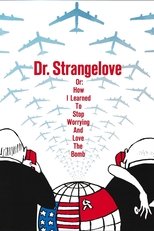
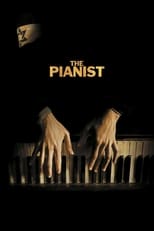
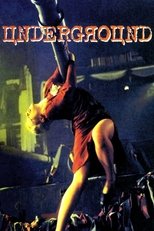
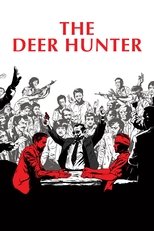
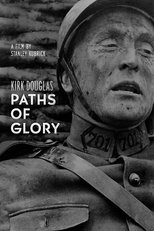
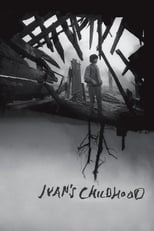
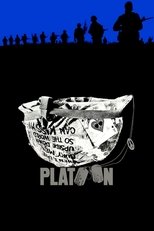

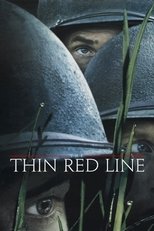


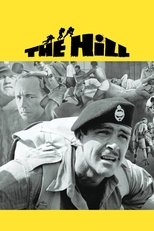
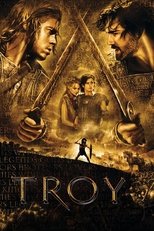
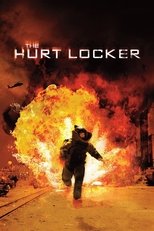
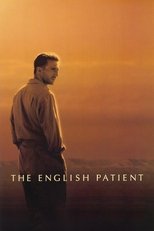
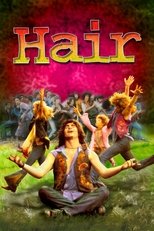
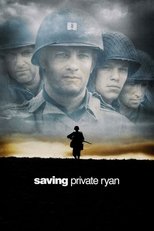
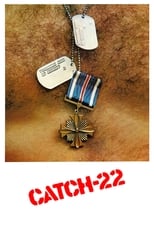
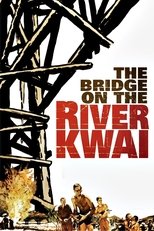

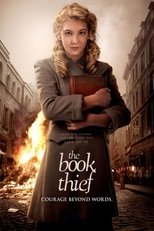
#3. The Bridge on the River Kwai (1957) on their lists. It is my #23.
I'd say that I put it in, mostly as a honorable inclusion.
I've had it in my watch-list for decades. Finally, about four months ago, I saw it. It was the only war movie I made effort to watch for this countdown.
The character of the Japan officer impressed me a lot (Sessue Hayakawa). I loved the scene when he took out a bottle of Johnnie Walker whiskey in the middle of nowhere in a central Asian region in the mid of the 20th century war-times. This bottle looked to me very contemporary thing and I was a bit shocked for a moment. Anyway, what an advertisement that's been and still is.
One strong feeling there is in this film, how both guys (both sides) are actually victims of the warmonger cartel whose representative was clearly shown here but ... I stop talking now not to be banned...
Obviously, David Lean has the good use of Aesopian language...
Both Kubrick and Lean were the last living resistance to the regime, using two different approaches - exposing things directly for the former and indirectly for the later.
I dream for a world with freedom to be explained who is who in the movie The Bridge on the River Kwai and other titles like this.
80/100
-----
My Ballot
▽
1. Empire of the Sun (1987) [#40]
2. Dr. Strangelove (1964) [#6]
3. The Pianist (2002) [#23]
4...
5. Underground (1995) [#43]
6. The Deer Hunter (1978) [#25]
7. Paths of Glory (1957) [#4]
8. Ivan's Childhood (1962) [#56]
9. Platoon (1986) [#16]
10. The Great Dictator (1940) [#22]
11. The Thin Red Line (1998) [#17]
12...
13. Ice Cold In Alex (1958) [#119]
14. Enemy at the Gates (2001) [#88]
15. The Hill (1965) [#94]
16...
17. Troy (2004) [DNP]
18. The Hurt Locker (2008) [#58]
19. The English Patient (1996) [DNP]
20. Hair (1979) [DNP]
21. Saving Private Ryan (1998) [#8]
22. Catch-22 (1970) [#116]
23. The Bridge on the River Kwai (1957) [#3]
24. Black Book (2006) [DNP]
25. The Book Thief (2013) [DNP]






















__________________
"Population don't imitate art, population imitate bad television." W.A.
"You can't depend on your eyes when your imagination is out of focus." M.T.
"Population don't imitate art, population imitate bad television." W.A.
"You can't depend on your eyes when your imagination is out of focus." M.T.
X
Favorite Movies
X
 Check out my podcast:
Check out my podcast: